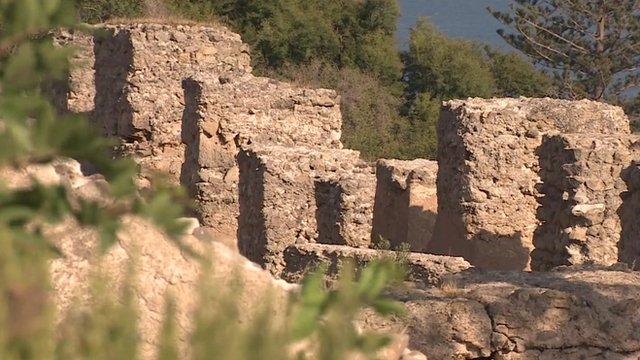Tunisia, terror and tourism: Why I am still going
- Published
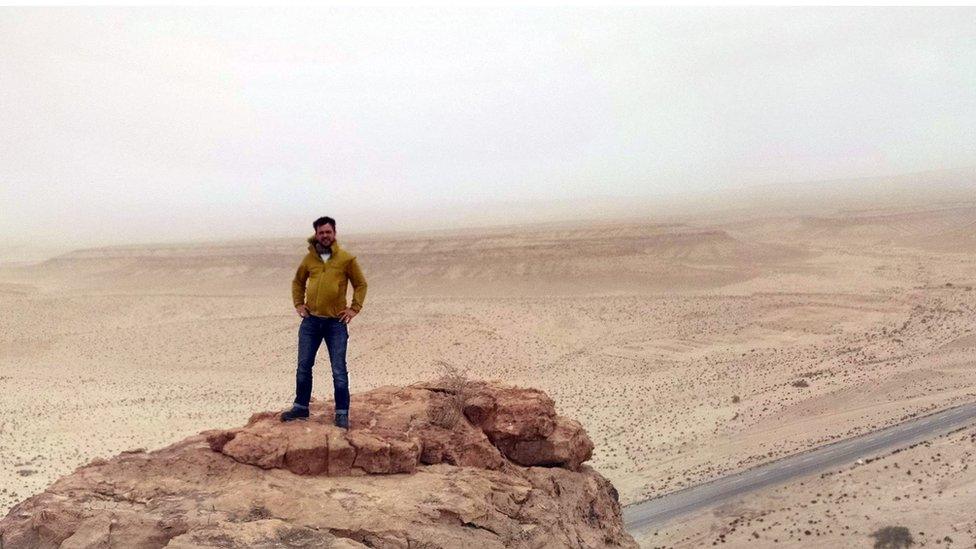
British holidaymakers have told the BBC why they are still visiting Tunisia, despite the UK government warning against all but essential travel to the country.
Tunisian officials urged the UK government to relax its travel guidance, put in place after 31 British holidaymakers were killed in two attacks last year.
The number of UK visitors has since fallen by 90%.
With the current warning, external in place, most travel insurance policies will be invalid for those planning to visit the country.

'Completely safe'
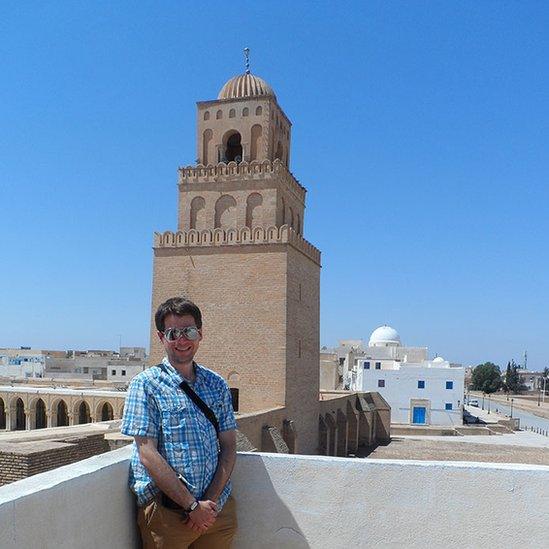
James Merriman returned from a four-night trip to Tunisia on Friday. He travelled by himself across the country and says he felt completely safe.
"There were a few police roadblocks, but I never felt threatened or concerned for my safety," he says.
"The lack of tourists was certainly noticeable throughout my visit to the different parts of the country.
"There were a few Russian tourists and a handful of Chinese tourists, but I didn't meet any other English people.
"The local people are a real credit to their nation.
"They were so happy to have met an English tourist and kept apologising to me personally for the terrible events of last year.
"I do sincerely hope the Foreign Office does relax its advice warning against all but essential travel to Tunisia.
"My trip was wonderful, and I would recommend anyone to give it a try and enjoy this marvellous country."

'Letting terrorists win'
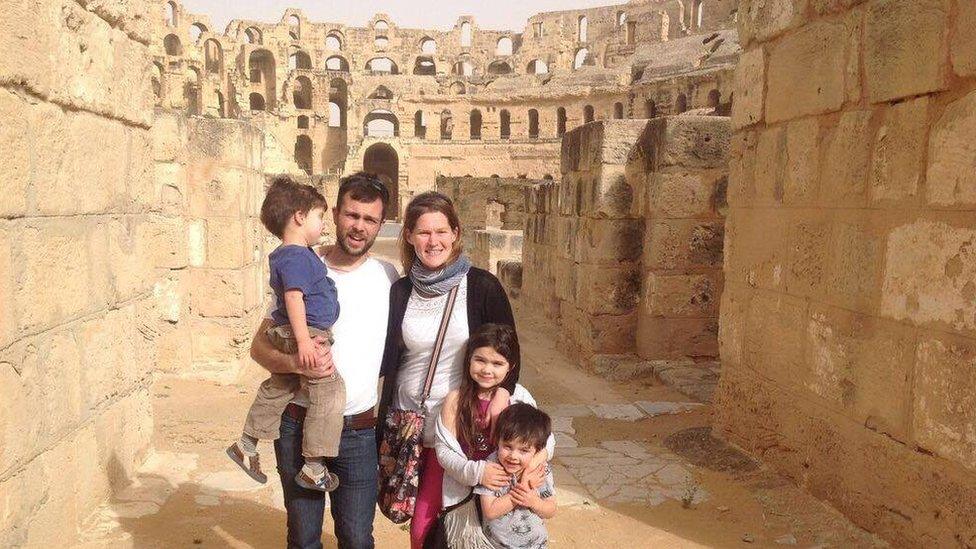
Matt Sullivan is from the UK, but has been living in Sousse since September 2015, with his wife and three children.
He says the downturn in tourism has had a big impact on Tunisia's economy.
"I have seen local people suffer because of the massive drop in tourism," he says.
"It's affecting everyone in our city: I meet people who have lost jobs because of this, nearly every day.
"There's no negativity towards the British government for its travel advice, but I think it would be justified for them to feel angry.
"In my experience, tourists understand the travel advice as pretty much meaning that you cannot come here.
"Most people assume that they will not be covered by travel insurance.
"Hardly anyone actually realises that, with a bit of shopping around, you can find insurance that covers you in Tunisia."
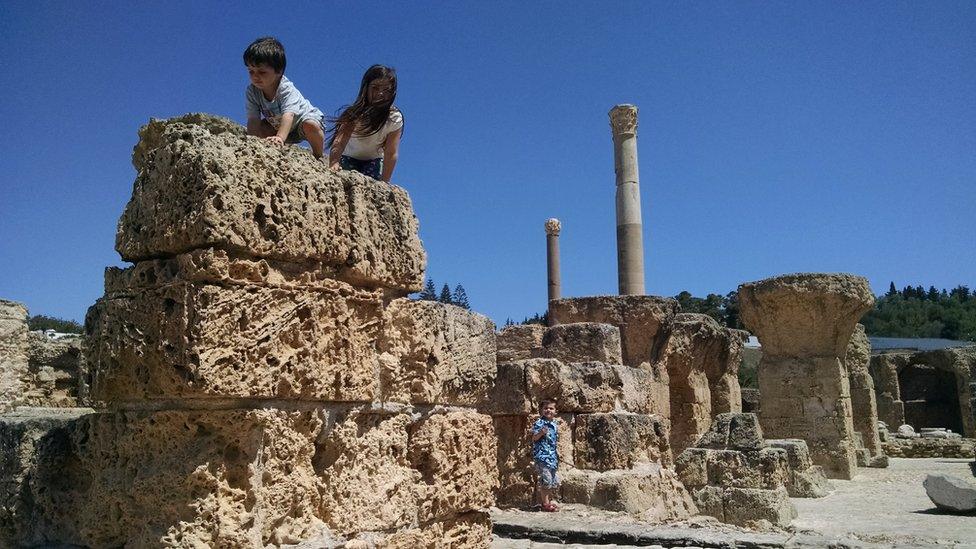
Matt Sullivan's children exploring an ancient town in Tunisia
"Tourists who do come here tell me that they feel very safe and looked after.
"The police presence has been noticeably stepped up, and reported arrests of terrorists have gone from very little to frequent over the last year.
"I certainly feel completely safe living here with my family.
"It seems to me that the government's travel advice system is not up to the particular threat of terrorism.
"The travel advice effectively stops people from being able to come to Tunisia, but what we need is to give people appropriate information and allow them to make informed choices.
"Otherwise, we are letting terrorists win.
"A very tiny number of people have been able to seriously hurt this country's economy.
"And the British people have virtually no choice to stand against the terrorists and with the people of Tunisia."

'Heartbreaking'
Jane Dutton has been going to Tunisia for over 20 years.
She has continued to travel there against the Foreign Office's advice, but while she used to visit up to six times per year, she now goes less frequently because of concerns about insurance for her children.
"I have been going with friends, but obviously I have not been taking my three children.
"This is purely because of insurance reasons: if I slip and break my leg, I get on a plane to come home and deal with it at a hospital in the UK, but it would be irresponsible of me to expect one of my children to board an aircraft whilst unwell.
"Tunisia is a fantastic country with the nicest people I have ever met in my entire life.
Three generations of Tunisian tourism
Tunisia urges UK to relax travel advice
Industry is dead, says tour guide
"It was heartbreaking when I went there in November and only 30 people were staying at a hotel with a capacity for 1,500.
"The [entertainment] team still worked, and the restaurant was open.
"I keep in touch with the staff and feel sorry for them.
"Currently, I'm going on holiday with my children to other places, and - as lovely as they are and as nice as the people are - I feel no loyalty to these other hotels or their members of staff.
"Nowhere else in the world has got my heart like Tunisia."

'Out of bounds'
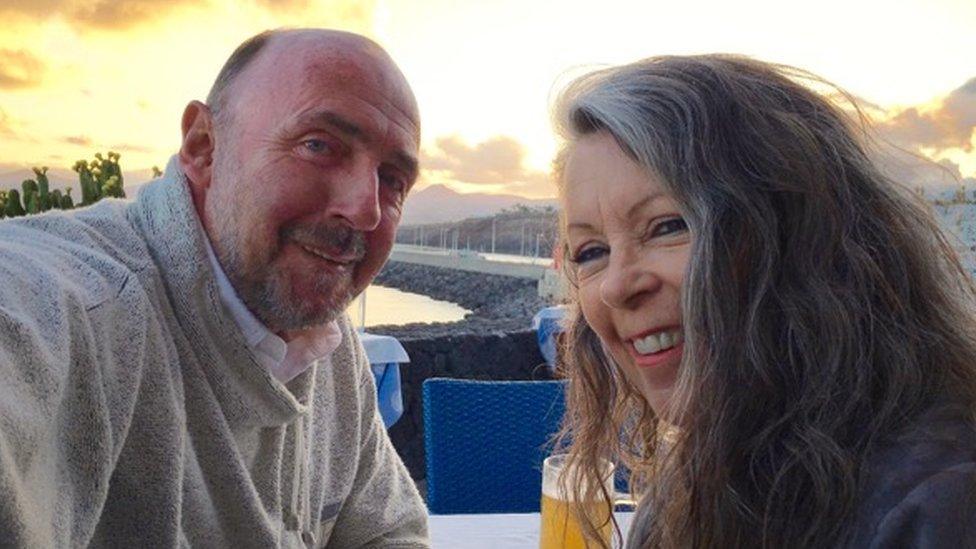
James Callaghan and his wife during a recent trip to Lanzarote
James Callaghan does not think it is a good idea to travel to Tunisia at the moment.
He has just come back from Lanzarote and is planning visits to Spain and Greece later this year.
"I wouldn't go to Tunisia even if the government's travel advice was relaxed," he says.
"In fact, I feel the whole of the Middle East is 'out of bounds' now and will be for some time.
"It's a shame, but why take the risk?
"There are plenty of other places to holiday.
"Nowhere is completely safe, but you have to weigh the odds even if the risk in Tunisia is small.
"I'd feel very unrelaxed in any of the North African holiday destinations, including on the flights to and from.
"That's not what holidays are about."

'Difficult family life'
Lisa's husband is Tunisian, and they have not travelled to his home country since last year.
She says she would definitely go there if the guidance was changed.
"I know lots of people that still travel, but with a child I would prefer to have insurance in place," she says.
"This makes family life difficult: we missed a wedding in Tunisia and my husband missed his brother's engagement last month.
"One of his cousins works in hotels and has not been working a lot of the time.
"The downturn also has a knock-on effect on shops and other businesses.
"If tourism doesn't pick up soon, the unemployed men will be easy pickings for extremist recruiters.
"Tunisia is such a lovely country, and the people are friendly and welcoming.
"It is a shame to see how this whole country is suffering because of the acts of a few.
"It is safer in Tunisia than a lot of other tourist destinations, but this is the only country with the Foreign Office advice against going.
"Let people make up their own minds."

Compiled by Michael Ertl
- Published24 May 2016
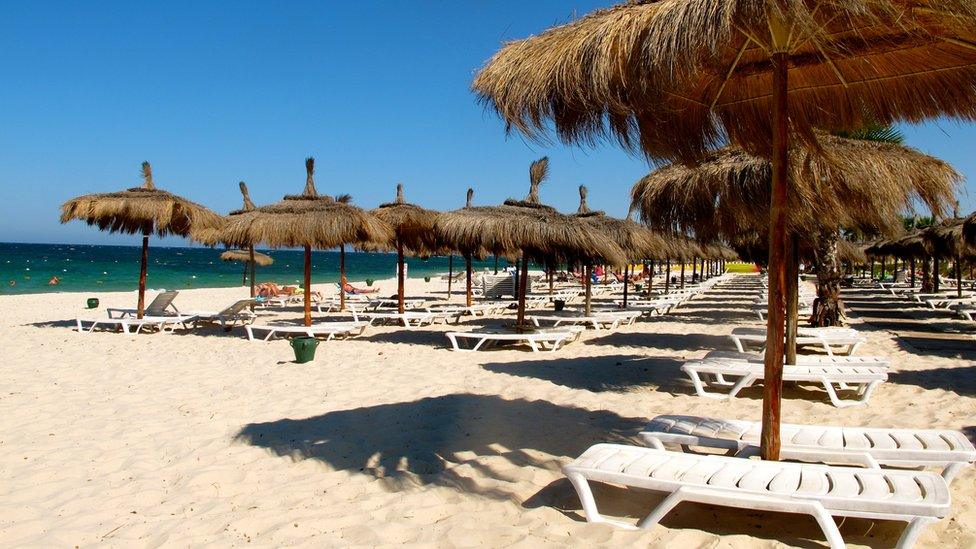
- Published11 July 2015
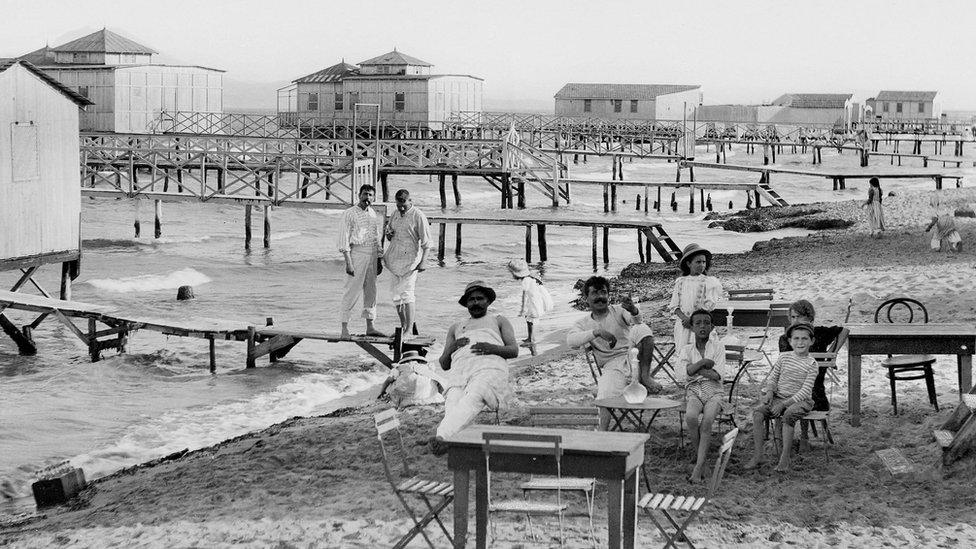
- Published16 July 2015
